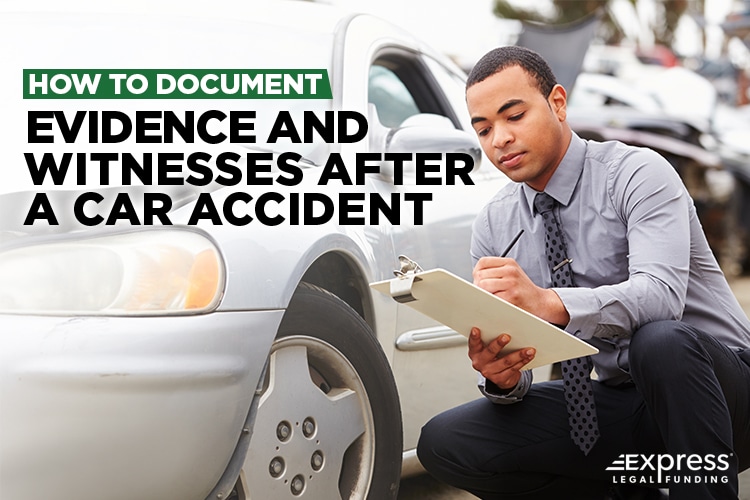
Documenting evidence and gathering witness information after a car accident is one of the most important steps you can take to protect your legal rights and strengthen your injury claim.
Whether you’ve been hit by a distracted driver or involved in a serious collision, knowing what to do at the scene can make a major difference in your ability to recover compensation.
In this guide, we’ll walk you through how to collect key evidence—like photos, videos, police reports, and eyewitness details—immediately after a crash. We’ll also explain why proper documentation matters, especially if you’re planning to file a personal injury lawsuit or apply for pre-settlement legal funding.
Note: If you are not physically able to gather these after an accident, or if you’ve forgotten some of these steps, it’s likely that your attorney can obtain copies for you during the discovery process. It is not expected or realistic to gather these items if you were incapacitated during the accident.
Gathering Photographic Evidence of the Car Accident
A motor vehicle accident can involve a great deal of finger-pointing based on how the accident transpired. Even the nature of the collision itself can bias the first responders. This makes gathering hard evidence an absolute necessity when recovering from an accident.
You should present this information to the proper authorities and the car accident attorney handling your injury claim. This evidence will lend integrity and strengthen the case you make to ensure fault is assigned to the appropriate people regardless of any allegations flung your way.
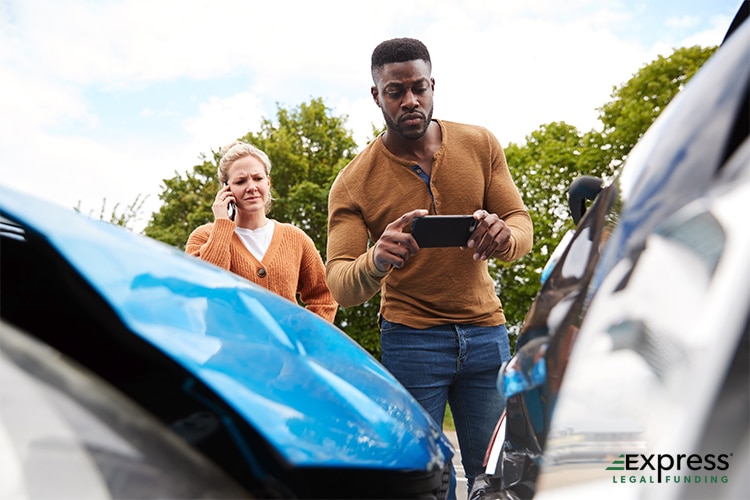
The first thing to do immediately after your accident is to document the damage. This process has never been more straightforward since virtually everyone has a camera, thanks to their mobile phones. So, hopefully, this makes the process a simple matter of collecting photographic evidence with your phone. Snap plenty of photos of the accident scene and the damaged vehicles.
However, a common mistake is when people forget to gather evidence of the at-fault driver’s vehicle damage. These images can be enlightening to experts to help correlate the damage between the two cars and help identify whether the damage at the scene of the accident lines up with your side of the story.
This photographic evidence also documents any environmental factors that might have contributed to the accident as well. Skid marks, road signs, traffic signals, vehicle damage, weather conditions, the time of the accident; all are pieces of evidence that may end up playing a part in your case.
Additionally, documenting the damage to both vehicles helps illustrate the severity of the damage one vehicle might have suffered over another, making it easier to identify who was the actual victim of the crash.
Importance of Documenting Weather Conditions in Car Accident Claims
Weather can significantly influence road incidents. Recording the weather conditions at the time of your accident provides more context that can help a claims adjuster. For example, wet or icy roads can impact vehicle handling and reveal whether visibility was reduced.
Use your phone to take note of the temperature, visibility, and any precipitation, such as rain or snow. Include these details in your report to bolster your account of how events unfolded. For instance, was there fog reducing visibility, or were roads slick with rain?
Video Evidence and Professional Evaluations of Car Accidents
Photographic evidence is not the only method used to document an accident. Using video recordings helps to show what was going on in the aftermath of the accident and can uncover any potential hostilities between the drivers.
If the vehicle operator becomes belligerent or violent towards you due to the accident, even if they are entirely at fault, getting a video recording of this behavior helps.
It can further demonstrate if you are the victim of both negligent driving and a hostile attitude and can be an excellent boon to your case. In many cases, video evidence is much more valuable than photographic due to the information it presents.
Another primary form of evidence comes from seeking out a professional evaluation of the damage to your vehicle. Go to a mechanic and have your car appraised and a report written about the extent of the damage. The mechanic will determine what can be repaired and what damage resulted from the accident. They can also tell you if you can have the vehicle repaired or if it should be declared a “total loss.”
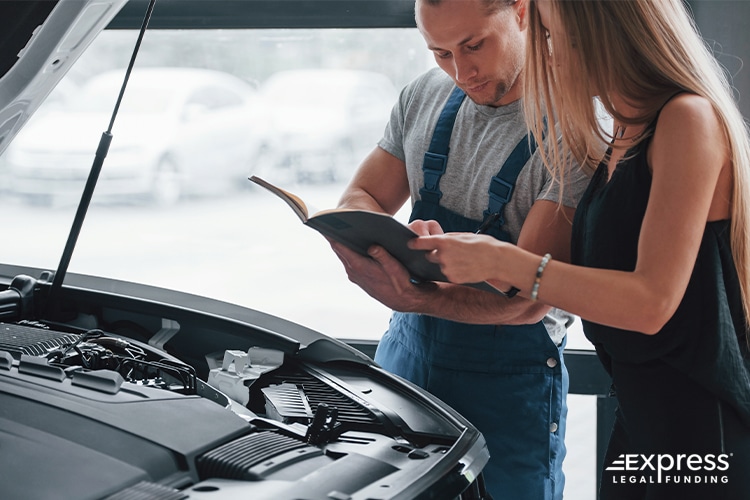
In a total loss, the other driver’s insurance company will purchase the wreck for scraps and give you funds to begin shopping for a replacement vehicle.
At the end of the evaluation, the mechanic will report the damages and vehicle status on the insurance claim. Obtaining a copy of this report serves a significant purpose in the negotiations for settlement following the accident, as the vehicle’s damage can be correlated to the injury you suffered as well.
However, there is yet more information that you can glean from additional sources from the accident scene. This information is different only in that you cannot be its source and must rely on the honesty of others.
Identifying Witnesses Who Saw How the Car Accident Happened
One of the most commonly cited sources of information during an accident, crime, or legal proceeding is the witnesses present at the time of the incident. These witnesses provide firsthand accounts of what transpired during the accident. This information is relayed to the law enforcement officials who are called to the site of the accident itself.
That said, the ability to call on witnesses is entirely out of your control, as you cannot choose when and where you get into an accident.
Suppose you do get into an accident where people can witness it. In that case, you are given the benefit of having additional reports to corroborate your version of events if you are genuinely free of fault. When an accident occurs, all drivers involved in the accident present their side of events to the responding officers for official documentation.
If you submit a truthful account of the accident that clashes with the other driver’s story and the witness statements present a version that supports your honest account, then your chances of coming out ahead in any subsequent legal proceeding skyrocket.

How can you gather witnesses? Ideally, you won’t have to work too hard here. Individuals who witnessed the collision might stop to provide their testimony, or they may continue on their way. On the other hand, people walking or working nearby may be easier to contact.
Either way, even though it’s helpful, it’s not necessarily your job to find witnesses. The police officer who responds to the accident report will often do that for you.
Another way things work out in your favor with witnesses relates to the physical evidence gathered from the environment. Video and photographic evidence gathered from the witnesses themselves can serve as excellent addendums to a case.
Cameras are everywhere now, from dashcams to phone cameras to security cameras in nearby businesses. When these recordings are presented, they offer a factual retelling of the events that caused the accident and make it easier to determine fault.
However, short of getting contact information yourself and reaching out to witnesses, there is often very little you can do to get ahold of these witness reports for your case. These accounts are generally held by the police department whose officers handled the accident and keep records of events.
However, when it comes to gathering the reports for a personal injury claim, they are generally requested by the driver’s insurance adjuster responsible for the accident and by the claimant’s personal injury lawyer. In either case, it is not common for you to access this information yourself since police reports are not usually public records.
Evidence of the accident and damage to the vehicle are primary sources for personal injury claim resolutions. However, some other details and documents are used to further the process and ensure a fair result.
The Issue of Witness Credibility in Car Accident Cases
Witnesses might seem like a fantastic boon to any motor vehicle accident case. However, some qualifiers determine whether a witness can be considered credible and whether the court can accept their testimony. Most witnesses have their credibility measured based on what factors might have affected their ability to perceive the accident.
For example, suppose a witness was driving and was focused on the road to avoid becoming part of the accident. In that case, they might be more credible than a pedestrian on the sidewalk who might have only caught the last few moments of the accident.
It is essential for a witness’s testimony that they saw the accident from beginning to end so that they are not filling in any blanks with presumption. This also means there cannot have been anything distracting from the accident scene that might have impaired them from witnessing these details.
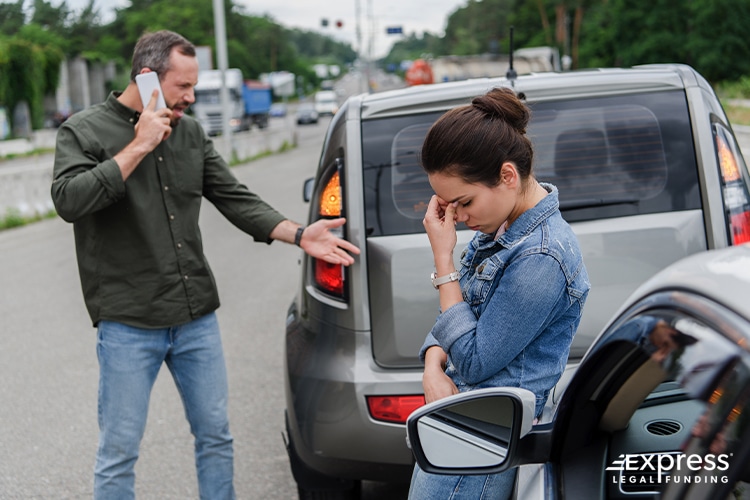
Additionally, character issues might affect whether an individual can be a useful witness, even in auto accident cases. For example, suppose the witness has a history of being dishonest, driving on a suspended license, or having a criminal record. In that case, their credibility as witnesses may be destroyed, even if they are testifying honestly.
Finally, a witness must not be suffering from any physical conditions that might negatively affect their ability to witness the details of the accident. For example, suppose the witness has poor vision and was not wearing corrective lenses.
In that case, their testimony might be unreliable since they were physically incapable of noticing the finer points of the accident. It is also essential that the witness is not someone who can be easily confused or suffers from memory issues.
If any of these factors apply to the witnesses of a motor vehicle accident, then their testimony might be more harmful to you than helpful.
Unfortunately, there’s not much you can do to control this outcome. Witnesses are determined by who is willing to speak to the police to offer their testimony and what they say. As someone involved in the accident, your job is to document the damage and conditions of the accident, tell your side of the story, and deal with having your vehicle moved or towed as necessary.
Gathering Medical Evidence of Your Car Accident Injuries
After an accident, your first instinct should be to immediately seek out medical treatment for your injuries, no matter how small they might seem. Even if the extent of your injuries seems superficial at a glance, they might be more severe due to trauma you are not immediately feeling due to the surge of adrenaline.
Therefore, the first step to your personal injury claim is medical care since your medical records demonstrate that the accident was severe enough to warrant medical attention.
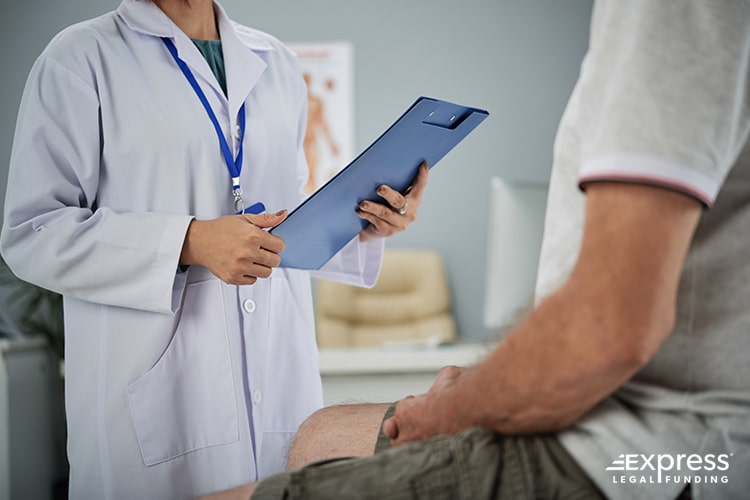
This more directly relates to substantiating your pain and suffering and getting the settlement you deserve rather than proving any fault or wrongdoing on the other driver’s part. When seeking medical treatment, your physicians and specialists will keep a comprehensive account of the treatments you are provided and an itemized bill to keep track of what costs those treatments incur.
You may also want to gather pay stubs or tax returns in the event that your medical care results in lost wages.
This is where gathering evidence comes into play. After completing a session with a healthcare provider, you should ask for a copy of your records and medical bills associated with all treatments for the car accident case. Then, these records can be provided to your attorney so that they might use the information to negotiate a fair settlement with the other driver’s insurance adjuster.
Ordinarily, these cases do not go to court as it is a simple matter of negotiating with the driver’s insurance provider. The costs of medical treatment are presented for these negotiations, and the proposed settlement is generally in line with these costs, plus a little extra for vehicle damages, property damages, and lost wages.
However, suppose the adjuster proves to be unreasonable when it comes to these negotiations. In that case, your attorney may present the case before a jury for litigation and funds awarded at their discretion. Once again, the records obtained from medical providers are crucial to these proceedings.
Final Thoughts on How to Document Evidence After a Car Accident
Finding the documentation you need to come out ahead in a car accident claim resulting from a motor vehicle accident can be simple. However, simply gathering the documents necessary from medical providers and taking video recordings and photos should leave you more prepared for any proceedings that might follow.
Be sure to trust in your attorney and inform them of all the details so that they can acquire any records you are unable to get ahold of yourself.
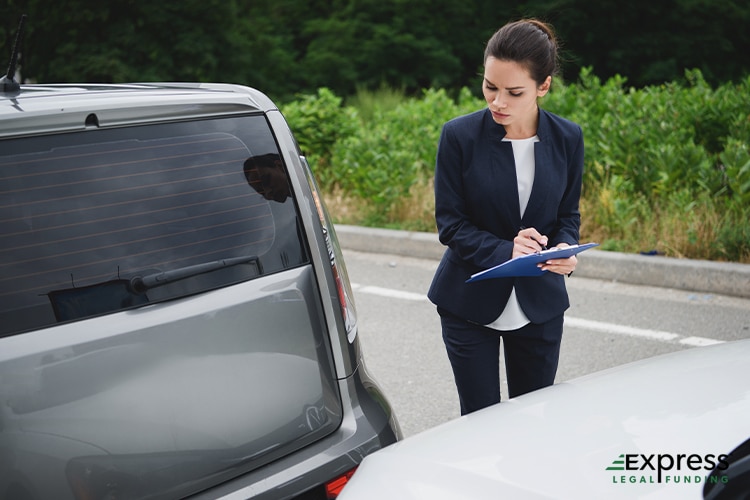
Finally, if you find yourself battling for a settlement following a motor vehicle accident, you might find yourself struggling financially. Unfortunately, the reality is that the severity of your accident does not stop the expenses of living. To this end, if you need help making ends meet, you might consider applying for legal funding.
In exchange for a portion of your settlement, legal funding provides funds you can use to pay for groceries and attend to regular bills such as rent or electricity. We at Express Legal Funding specialize in this practice, so call us today and see how we can help you.
